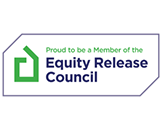Securing a Mortgage with Bad Credit: Is It Possible?
Imagine this scenario: Alex, a single parent of two, finally decides to own a home where their family can grow and live comfortably. However, there’s one factor that holds her back from becoming this a reality: bad credit. Due to missed payments and a few defaults in the past, Alex feels like she can never secure a mortgage with this kind of credit history.
For individuals in similar situations, it’s common to think that poor credit automatically disqualifies them from homeownership or that there are no lenders willing to consider their applications.
However, that is completely UNTRUE.
While bad credit can complicate the process, it does not make it impossible.
As a trusted mortgage broker in the UK, we’re here to provide actionable advice for those looking to secure a mortgage despite having bad credit. By exploring various options, potential strategies, and essential steps to improve their chances of approval, borrowers can navigate the mortgage process with confidence.
.png)
Overview: Getting a Mortgage with Bad Credit
Potential borrowers with poor credit scores can experience several challenges during the process. Many lenders consider those with bad credit as a significant risk, leading to concerns about the borrower's ability to repay the mortgage. What more, they may find themselves facing higher interest rates, larger deposits, or outright rejection from mainstream lenders.
These challenges can discourage borrowers from achieving homeownership. To help them prepare for this situation, here are the key factors that lenders consider when assessing applications from borrowers with bad credit:
- Credit history: Lenders will review the applicant’s credit history to see how long it has been since any credit issues occurred. A more extended period without missed payments or defaults can positively influence the lender’s decision.
- Deposit: Individuals with bad credit are often required to provide a larger deposit compared to those with good credit. This way, it reduces the lender's risk and demonstrates the borrower's commitment to the property.
- Income: It is essential for borrowers to prove they have a stable income to support the mortgage repayments. Lenders will look for consistent earnings that indicate the borrower’s ability to manage their financial obligations.
- Employment status: A stable, full-time job significantly increases a borrower’s chances of approval. Lenders prefer applicants with a reliable employment history, as this stability suggests a higher chance of timely mortgage payments.
- Affordability: Lenders will assess the borrower’s overall financial situation through their income, existing debts, living expenses, and other financial commitments. This evaluation helps lenders determine if the borrower has enough funds to cover mortgage repayments alongside their other obligations.
How a Low Credit Score Impacts Mortgage Approval
It’s a fact that a low credit score can affect a borrower’s chances of securing a mortgage. Since lenders look at credit scores to gauge the applicant’s financial reliability, a poor score often signals risk when it comes to repayments.
Let’s explore the areas that low credit score impacts in mortgage approval:
.png)
Mortgage rates
As mentioned earlier, lenders often view applicants with poor credit as high-risk borrowers, and they compensate for it by offering loans with higher interest rates.
The specific rate offered will depend on many factors such as age, reason, and severity of the borrower’s credit issues. For example, serious financial issues like bankruptcy will likely result in a higher rate.
Loan-to-value (LTV)
Borrowers with bad credit are usually offered lower LTV ratios, which means they need to provide a larger deposit to reduce the lender’s risk.
Loan-to-value is the percentage of the mortgage lenders will loan to the borrower. So, if the property value is £500,000 and the borrower applied for a £400,000 loan, the LTV will be 75% and the remaining 25% will be paid via deposit.
For those with bad credit, a higher deposit means less risk to lenders, lower LTV, and better mortgage rates.
Overall eligibility
A low credit score can also limit a borrower’s overall eligibility for certain mortgage products. Some lenders may outright reject applicants with credit scores below a particular threshold, while others might only offer specialised, subprime mortgages.
These options tend to come with stricter terms, including higher interest rates, shorter repayment periods, or additional fees. In some cases, borrowers may need to work with mortgage brokers who specialise in bad credit to find a suitable lender willing to approve their application.
Types of Mortgages Available for Bad Credit Borrowers
Securing a mortgage can feel challenging for borrowers with bad credit, but don’t worry: there are several options available. Lenders offer specialised mortgage products to accommodate those with poor credit histories.
Here are some of the options borrowers may explore:
Adverse credit mortgage
Adverse credit mortgages are specifically designed for borrowers with lower-than-average credit scores. While these mortgages can provide access to home ownership for those with bad credit, they typically come with higher interest rates and fees compared to traditional mortgages.
The elevated rates compensate for the increased risk lenders take when approving individuals with a less favourable credit history. However, this doesn't mean that adverse credit mortgages are unaffordable. Many lenders will work with borrowers to find a mortgage product that suits their individual needs and circumstances.

Guarantor mortgage
A guarantor mortgage is a specialised option often suitable for first-time buyers or students who may struggle to meet standard mortgage requirements. With a guarantor mortgage, a family member (often a parent) acts as a guarantor to secure the loan with their own property or savings.
This type of mortgage typically offers a maximum loan-to-value (LTV) ratio of 90%, and, unlike some other arrangements, parents will not be liable for second home tax. This product can be ideal for borrowers who have difficulty saving for a deposit or meeting the eligibility criteria for traditional residential mortgages.
Government backed schemes
- Home Ownership Support Scheme
The Open Market Shared Equity (OMSE) scheme is a government-backed initiative available across Scotland, designed to support first-time buyers with low or medium incomes. This scheme is particularly helpful for individuals who cannot afford the full price of a home.
Applicants can purchase a share of a property—usually between 60% and 90% of its total value—while the Scottish Government retains ownership of the remaining portion. This arrangement allows buyers to secure a home without needing to cover the entire cost upfront, making home ownership more accessible despite financial limitations or bad credit.
- Help to Buy
The Help to Buy scheme is government backed mortgages that offer just 5% deposit. This guarantee incentivises lenders to offer 95% loan-to-value (LTV) deals, making it easier for individuals with a small deposit to secure a mortgage. Lenders participating in the scheme pay a fee for the Government guarantee, which can make up for their loss iif the property is repossessed.
Steps to Improve Your Credit Before Applying
Improving their credit score is an important step for borrowers looking to boost their chances of securing a mortgage, especially those with poor credit histories.
While having bad credit feels like a barrier, taking proactive measures can help find better mortgage options and terms.
.png)
Here are some actionable steps to follow:
- Review credit score: Borrowers must understand their current credit standing to see issues that are affecting their score. Correcting any inaccuracies can make a difference in one’s credit profile.
- Pay bills on time: Consistently paying bills early or on-time is one of the most important factors impacting credit scores. Borrowers should ensure that all their bills are paid promptly to demonstrate reliability to potential lenders.
- Repay debts: Reducing outstanding debts can help improve credit score and make applicants more appealing to lenders. Paying off debt can also lower debt-to-income ratio.
- Lessen new credit inquiries: Borrowers should avoid applying for new credit or loans upon mortgage application. Multiple credit inquiries can signal financial instability to lenders.
- Get help boosting your credit score: Applicants can seek professional help if they are unaware of the next steps to take. Getting expert guidance can make it easier to improve credit and prepare for a mortgage application.
Specialised Lenders for Bad Credit Mortgages
When dealing with bad credit, borrowers may have a low chance of mortgage approval from traditional high-street lenders. These institutions usually have strict criteria that heavily focuses on credit scores. For this with poor credit history, turning to specialised lenders may offer a more viable path to ownership.
Let’s see the key differences between the two:
|
CRITERIA |
TRADITIONAL LENDERS |
SPECIALISED LENDERS |
|
Credit score history |
Strict requirement for good credit scores |
More flexible to those with low or poor credit |
|
Risk tolerance |
Lower risk tolerance and may reject applications with poor credit |
Higher risk tolerance and caters to borrowers with complex histories |
|
Interest rates |
Typically offer lower rates to borrowers with good credit |
Higher interest rates to offset the risk of bad credit |
|
Flexibility in lending criteria |
Strict lending criteria with less room for exceptions |
Tailors mortgage options to individual circumstances |
|
Product range |
Standard mortgage products |
Specialised mortgage products, such as solutions for those with adverse credit |
With the help of a specialised mortgage broker like The Lending Channel, borrowers can access expert advice and a wide range of mortgage options, including those tailored to individuals with bad credit.
Secure Your Mortgage with Expert Guidance from The Lending Channel

Navigating the mortgage market with bad credit can be difficult. However, with the right expertise, it’s entirely possible to find a solution that fits your needs. At The Lending Channel, we specialise in helping individuals with less-than-perfect credit access the best mortgage options available.
Our experienced team understands the complexities of bad credit mortgages and works closely with a range of lenders to find tailored solutions for every situation.
Don’t let bad credit hold you back from securing your dream home. Contact us today to discuss your mortgage options and take the first step toward home ownership with confidence!




.jpg)

.png)
























